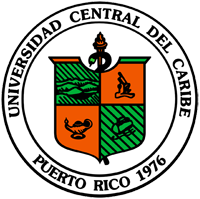The associate’s degree in Interventional Radiology and Angiography is designed to follow the curricular recommendations developed by the American Society of Radiologic Technologists (ASRT) and the academic preparation requirements established by the American Registry of Radiologic Technologists (ARRT) for those interested in taking the credential of specialized technologist in cardiac and vascular interventional radiology. Students in the program would take four specialization courses, three didactic courses and one clinical course, in the same format in which the other specialty certificates are offered within the Medical Imaging Technology Program.
Description of the Interventional Radiologic Technologist
A radiologic technologist in interventional radiology and angiography is responsible for preparing and positioning patients, operating advanced imaging equipment, and assisting radiologists during procedures such as angioplasties and image-guided biopsies. Additionally, they ensure radiation safety, administer contrast media, and monitor the patient before, during, and after the procedure, ensuring comprehensive and accurate care. Their professionalism is reflected in their ability to remain calm under pressure, communicate effectively with the medical team and patients, and adhere to the highest standards of safety and quality in every procedure.
Graduate Profile
The radiologic technologist specialized in interventional radiology and angiography is trained to perform the following functions:
- Explain the procedures for patients, obtaining their consent and trust.
- Prepare the patient appropriately for the interventional procedure to be performed.
- Organize a sterile work field before and during all procedures.
- Check the patient’s vital signs during the interventional procedure and inform the physician.
- Through monitoring sonographic and radiological images, identify cardiovascular signals to record detailed information on cardiovascular, central, and peripheral function, cerebral, thoracic, or abdominal circulation, and oxygen saturation.
- Manipulate essential tools when assisting the physician during the interventional procedure.
- Operate the radiographic equipment and ensure its proper use to obtain optimal images following the established protocol.
- Establish fluoroscopy time control to ensure that it does not exceed the recommended limits (ALARA).
- Recognize the procedures for administering contrast media to carry out the interventional procedure.
- Validate patient records before, during, and at the end of the interventional procedure, ensuring the confidentiality of the information.
General Admission Requirements
- Associate Degree in Radiologic Technology with a minimum GPA of 2.50
- Proficiency in English and Spanish (speaking, reading, and writing)
- Learn more about the requirements
Apply Online
